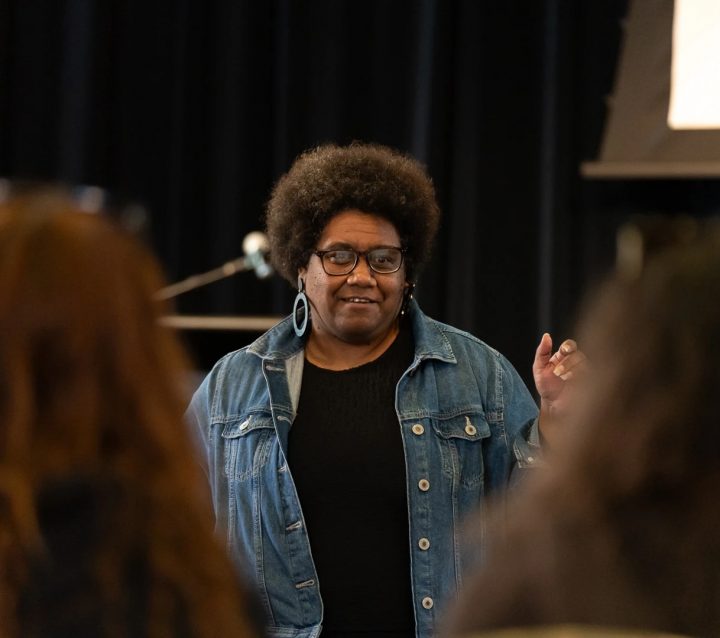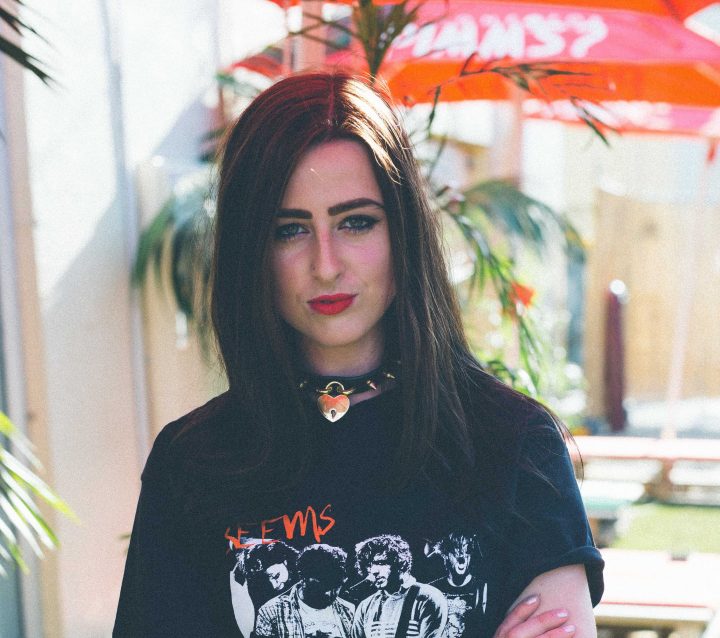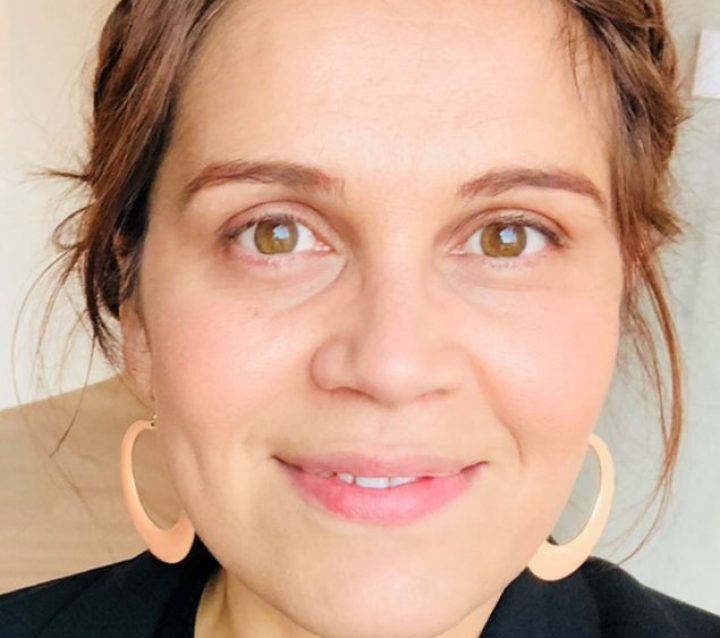
(Photo credit: Sean Finney)
What is your role at Pilerats/Metric and how long have you been in the position for? What else are you working on at the moment?
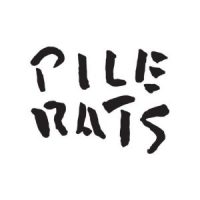
I do publicity for Metric’s music festivals Wonderland, CIRCO and Castaway, and for Metric’s live music venue Jack Rabbit Slim’s. I’m a journalist for Pilerats.com and produce videos for Pile TV, Pilerats’ video channel. I’ve been at Pilerats for one year…one very busy year!
I also do freelance PR under my own name, Dani M Publicity, host a rap radio show called Cloudwaves, and work in a bookshop.
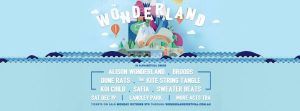
Describe a normal day in the life of Dani.
Alarm wakes me up 5.45am for boot camp. Wonder what the hell I was thinking. Re-set alarm for 7.30am. Get woken up at 6.30am because Vodafone wants to tell me I’ve used all my data. Fk you Spotify. Drive to work. Stop to get quick coffee. Quick park illegally. End up behind person in line who orders 20 coffees. Get parking ticket. Get to work, steadily untangle the deluge of daily tasks. I am still trying to master the skill of doing the most important thing first, rather than getting a bajillion not-vital things done. Work through to 6.30ish.
If it’s a Friday or Saturday night I’ll pretty much always go out for drinks or dinner with friends, or have people over, then go to a gig. Sunday nights I always work in the bookshop. Weeknights I go for jogging in the dark through Mount Lawley streets and parks, listening to rap/dance music. That sounds creepy but it’s a routine I’ve had for years and I get through a lot of new music this way (It’s also great for chewing through data on Spotify so you get morning wake-up texts from Vodafone).
I usually grab food because I have zero interest in cooking. Or some of my nice mates who all excel at cooking will make me dinner. Then I’ll go to bed, read whatever biography or lame self improvement book I brought home from the bookshop that week, then bunker down with my iPhone to cycle through socials and read informative articles about how you should ban mobiles or laptops before bed because it messes with your sleep. Turn off light, lie wide-awake for hours, vowing to self to try that whole ‘banning screens before bed’ thing one day.
It would be great to see more respect from the government for the australian music industry, and acknowledgement of how the increasing success australian artists are experiencing internationally plays in raising australia’s cultural standing
How did you get your start in the music industry – what is your story of how you got to where you are today?
I started out studying a law degree and was so uninterested in it that I joined about a billion clubs so there was always somewhere more important to be. A rehearsal, a debate, a meeting, a soccer game…the pub. So long as it wasn’t my law lectures, I was giving it 110%. I joined the uni newspaper as a sub-editor, and began doing heaps of freelance journalism for digital websites and street press. I remember one day I had an essay due and instead of writing it I spent four hours writing basically an essay-length review of Midnight Juggernauts’ album Dystopia… that’s when I decided to drop the law part – I continued with my Arts degree, majoring in English, and added a second major, Communications.
Once I graduated, on the strength of the fairly big freelance portfolio I’d built up by the age of 21, which included work for DAZED, Oyster, Vice and more, I got a part-time job at X-Press Magazine, as the Club Editor. During this time I kept up my freelancing and started copywriting custom titles for Melbourne-based publishing company Right Angle Studio. They ran Time Out-style city guides around the nation, but were yet to start one in Perth. I tried hard to convince the publishers that Perth really needed its own SixThousand, but they weren’t ready yet. Six months later they called me – they were ready now, and they offered me the job of Editor. I worked in that role, building the publication in Perth from the ground up, for five years – mostly out of a shared studio with some awesome graphic designer dudes, called The Village. During that time I also worked in an art gallery.
While I was at SixThousand I used to get called on by bands and photographers and creatives to write them biographies, or help with word stuff, so when I left SixThousand I decided that to best utilise the network I’d built up at SixThousand, and to make the most of my creative writing skills, I’d start my own PR company, Dani M. At this time I also got a job as a marketing manager for a theatre company. While I was doing this, I was soliticing for Dani M PR clients, and a club promoter friend whose gigs I’d written about a lot in SixThousand had started a music festival called CIRCO – I convinced him and his business partner to let me give publicity for the festival a shot, and they employed me for a two month contract – this led to more PR work for another of their festivals, Wonderland, then to part-time work at Pilerats, then to full-time work at Pilerats.
What advice would you give to your 18yo self?
Enjoy exposing your midriff more while it’s still acceptable.
Do you think that higher education is necessary if you want to work in the music industry?
I read this pearler somewhere once and I reckon it’s pretty good advice re: uni and working in the music world. “It’s like climbing Mt Everest. You’d be better if you did some training for it, but just because you’ve trained doesn’t mean you won’t fall down.” I graduated with an English major, and it’s given me a great critical framework for my cultural writing, plus a broader set of references and tastes to draw on in my creative work.
If you’re going to uni, you also gotta join clubs. Doing extra-curricular stuff teaches you to balance work and play, which is important when you’re working in music – you go to heaps of gigs and events (and need to be on the ball re: networking / opportunities while you’re out and about, especially as a publicist) and you have to be organised enough to do that and manage your workload. So many times when I was a freelance music journo I’d get boozy at gigs then have to drag myself out of bed early to type up the gig review before deadline while all my friends were sleeping in. Or when I was at SixThousand, after really long days putting the magazine together, I’d be obliged to head out to an event or opening of someone the magazine featured/supported, even if I was exhausted.
If you’re going to uni, you also gotta join clubs. Doing extra-curricular stuff teaches you to balance work and play, which is important when you’re working in music
Have you had to overcome any challenges in your role, and if so, how did you deal with it?
I remember the decision to leave my post as SixThousand editor, where I wrote a weekly digital cultural guide to the city – was one of the hardest challenges I’ve faced. I was there for nearly five years and it was a dream job – getting paid to party and go to gigs, art openings, new restaurants, and then writing about them, getting free clothes and sneakers and tickets etc. There was a lot of perks, and a lot of respect, and I met so many awesome, inspiring musicians, writers and artists, and had the opportunity to put on so many fun events. For a while towards the end it felt like it was time for me to leave – that someone new should get the opportunity to experience what I had, and to breathe fresh life into the publication – but I delayed leaving for ages – I didn’t know what my identity would be without that job – it took me through that super pivotal time of 22 – 26 type thing. Also I was the founding editor, so I felt like even though it was owned by a publishing company, it was my baby, I’d given so much of my time and tears into growing it to where it was.
I finally realised that the longer I stayed, the harder it would be to leave, and the longer I’d be working on someone else’s dream, building someone else’s project instead of my own. That, plus finding a new Editor to pass it onto that I wholly trusted to continue what I’d started with it, plus also the fact that I didn’t have the energy to hold down such a demanding social schedule anymore was what finally allowed me to step down.
Who are your role models in the industry?
Meaghan Garvey – she’s a Chicago based journalist who writes for Pitchfork and FADER, her knowledge and critical insight into rap music is incredible, her long-format opinion editorials are intellectual yet funny and casual. She also sells awesome rap-music inspired art and DJs under the name ‘Moneyworth’. A couple of years ago she put a bunch of awesome mixes online and they’re some of my favourite mixes of all time. Download her mix for the Chicagoist here, it’s the best!
Angela Henley – She’s been running her own music PR business out of Melbourne for about ten years, and does publicty for the Meredith Music Festival and Golden Plains and has run campaigns for Melbourne Festival. I love how creative her copy is; she has built such an incredible personality for Meredith.
Sheryl Sandberg – She used to be CFO at Google and now she’s the chief operating officer at Facebook so basically one of the world’s most high-profile ladies in the tech sector, which is a bit of a boys club. I’ve read her book about what’s holding back women in their work and life and how to address it, Lean In: Women, Work and the Will to Lead, three times over. My favourite quote from the book is: “There is no perfect fit when you’re looking for the next big thing to do. You have to take opportunities and make an opportunity fit for you, rather than the other way around.”
What needs to change in the Australian music industry?
It would be great to see more respect from the government for the Australian music industry, and acknowledgement of how the increasing success Australian artists are experiencing internationally plays in raising Australia’s cultural standing. This support needs to be echoed by mainstream media – in WA, our state newspaper will regularly aggrandise sporting events, giving them pride of place on the front cover or dedicating pages’ worth of editorial space to sporting event specials, but its really rare to see music or art command that same prime media real estate.
This respect needs to be reinforced from the government financially, with increased funding for community radio (who do huge work giving musicians exposure and developing skills of future broadcasters and radio journalists) and for the development of more credible new music discovery platforms / stations (such as Unearthed), protection (and less red tape) for existing live music venues / funds to establish new live music venues (no point having all this talent if there’s nowhere for bands and DJs to play), as well as support for independent record labels, who help artists breakthrough without having to compromise and whose individualism ensure that our industry doesn’t become too homogeneous.
What was the first album you purchased?
Merril Bainbridge’s Garden In My Room, I was in Year 3. A nice slice of 90s alt pop containing such hits as Under The Water and Mouth. As an eight year old, I used to walk around the house, clutching the liner notes, singing When I kiss your mouth, don’t wanna waste it/Turn you upside down, I wanna taste it. Merril has a lot to answer for.
What three Australian artists are you most excited about?
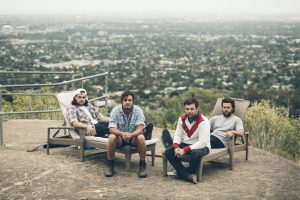 Bad // Dreems
Bad // Dreems
These guys from Adelaide have been at it for a couple of years but I feel they’ve really hit their stride with their recent album Dogs At Bay. They’re like young Paul Kellys, smashing out new Ausssie classics. Their earnest, rough’n’ ready backyard rock sound makes me feel like I’m 21 again, sitting on the concrete floor of Dada’s Garage (the back of Dada’s record store in Perth, where spontaneous BYO underground gigs used to go down) drinking beer out of a brown paper bag, watching local punk/rock/experimental bands thrash around, the sticky summers’ night rich with boozy possibility.
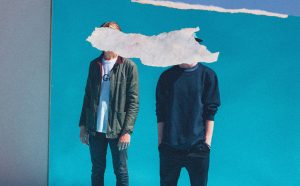 Slum Sociable
Slum Sociable
I’ve only heard two tracks from this Melbourne duo – Anyway and All Night – but they’ve already won me over with their lush sample-heavy electronica and washed out hip hop/jazz sound. The whole genre hybrid thing makes them sound like 2015 should – Laneway Fest’s already snapped them up for next year and I reckon their star is going to rise pretty quickly.
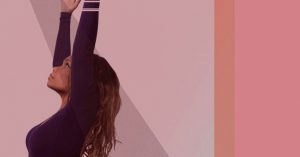 Ngaiire
Ngaiire
There’s not a lot of ‘future soul’ artists coming out of Australia, and there’s not a lot of young female Papua New Guinean pop/R & B singers coming out of Australia either – Ngaiire (pronounced ‘Ny-ree’) stands out – and for the right reasons. I really like her single Once – the warmth and soul of her voice paired with a gentle electronic beat makes for a good combo. Looking forward to her full-length release Blastoma – Oz music alumni Paul Mac and Megan Washington co-wrote it so it’s sure to have depth and diversity.
What is your go-to karaoke song?
Gabrielle – Dreams. In the movie of my life, this is also the song that starts playing when I overcome key obstacles.
More Interviews

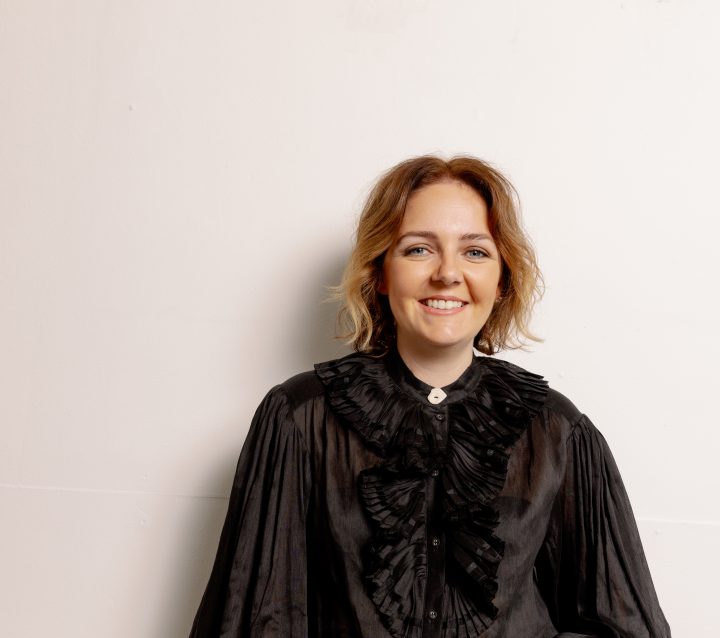
Natalie Kradolfer
Natalie Kradolfer // Amplify Music Education // Managing Director & Co-Founder
Natalie Kradolfer
Natalie Kradolfer // Amplify Music Education // Managing Director & Co-Founder
